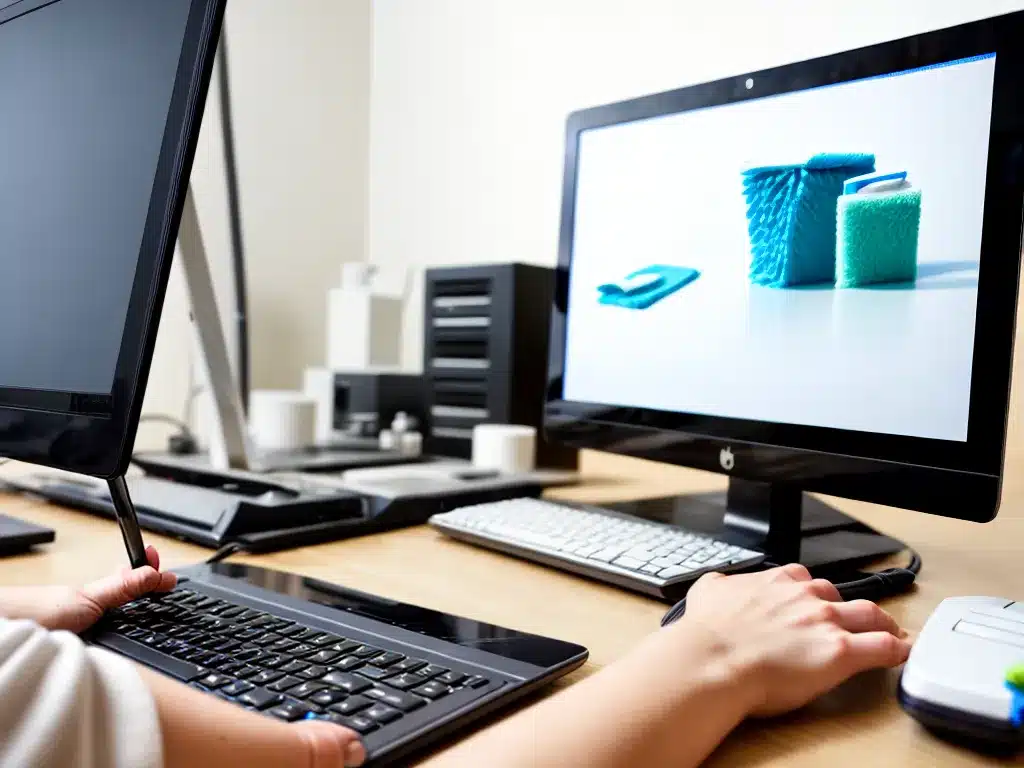

Cleaning Out Your Computer – When and How To Do It
Regularly cleaning out your computer is an important maintenance task that can keep your machine running smoothly and prevent problems down the road. Here is a guide on when you should clean your computer and how to do it properly.
When To Clean Your Computer
Every Few Months
I recommend doing a light cleaning of your computer every 2-3 months. This involves clearing out unnecessary files and running maintenance utilities to free up disk space, clean the registry, and defrag the hard drive. This regular tidying keeps everything optimized for peak performance.
When Experiencing Problems
If you notice your computer running slower, crashing frequently, or acting erratically, it’s a sign a deeper cleaning is needed. Issues like frequent freezing, apps crashing unexpectedly, or errors popping up out of nowhere are indicators your computer is cluttered and needs maintenance. Doing a thorough cleaning can often resolve these problems.
Before a Major OS Upgrade
Doing a full clean before a big upgrade like moving from Windows 10 to Windows 11 helps ensure all goes smoothly. Removing junk files, running utilities, and tidying the hard drive prepares your machine for the process and reduces likelihood of issues. I always make sure to fully clean my PC before major upgrades.
How To Clean Your Computer
Delete Unneeded Files
Go through all files and folders, including downloads, documents, media, caches, and delete anything not needed. Empty the recycling bin afterwards. This frees up valuable disk space.
Clean Up Drive With Utility
Use a utility like CCleaner to clean out junk files, invalid registry entries, caches, browsing history, etc. This cleans up clutter behind the scenes. Always backup registry before cleaning in case of problems.
Physically Clean Inside Case
Open up the case and use compressed air to spray out any dust buildup. Make sure fans and vents are free of dust. This maintains proper airflow and cooling. Replace thermal paste on CPU if dried out.
Update Drivers
Go to manufacturers’ sites and get latest drivers for graphics card, network adapters, printers, peripherals, etc. Updating drivers improves performance and fixes issues.
Check for Malware
Run a full malware scan using a good antivirus program like Malwarebytes to check for viruses, spyware, trojans, etc. Removing infections keeps your system safe.
Defrag Hard Drive
Use the built-in disk defragmentation tool to rearrange and optimize file storage on the hard drive. Defragging improves access speed.
Backup Important Files
Copy important files, photos, work docs etc. to an external hard drive or cloud storage before cleaning. This safeguards your essential data.
Following these best practices for when and how to clean your computer will keep your system running like new and prevent myriad problems caused by digital clutter and technical debt accumulation. Take time to thoroughly clean your PC every few months for optimal performance.












